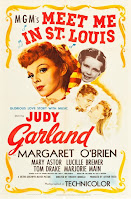Happy Thanksgiving, etc.
Movies
Time (2020)
An incredibly moving documentary of prison abolitionist Sibil Fox Richardson's fight to get her husband released from prison. To the extent that it's trying to portray the fight itself (only occasionally), Time isn't really that effective, and the details of the case remain hazy throughout. But as a deeply subjective (I don't think there's a shot in the film that doesn't include Richardson) exploration of not just the passage of time but also the way that prison compresses enormous fractions of a person's life into lonely captivity, this movie is a powerhouse. The decision to color-match home-video footage to the modern-day original b&w footage is a masterstroke, and the way the movie uses this simple aesthetic choice to blend the past with the present is one of the best formal decisions I've seen in a documentary in years. Grade: A-
I Am Greta (2020)
I would have been interested in learning a bit more about her family and the dynamics through what is obviously an incredibly difficult time for them, and the glimpses we do get of her father hint at some really complex tensions among the parental roles of caregiver, protector, and advocate (though given the amount of vitriol Greta has received as a public figure, it's understandable that the family might not have wanted to invite a more intimate depiction of their lives). As such, it's a somewhat surface-level treatment of Greta Thunberg's activism leading up to her famous UN address. Luckily, the surface of her activism is still pretty inspiring, and I'm pretty impressed with the extent to which she is able to immediately recognize her inclusion on the global political stage as merely virtue-signaling theater. I kind of wish the movie had done a little more of a deep-dive into that idea, too. Grade: B-
First Love (初恋) (2020)
I was really tracking with this at first (the idea of two down-on-their-luck folks getting unintentionally swept up into organized crime drama is solid stuff), but I lost interest hard in the second half as this devolves into some pretty tired crime violence and some forced humor. I know the guy has like two billion movies and I've only seen three of them, so maybe this is premature of me to say, but I'm starting to wonder if Takashi Miike just isn't for me. Audition is great of course, but the other two I've seen (this and 13 Assassins) have been middling experiences for me. Grade: B-
Catches Herzog in a rare sweet and sentimental mood. The film is basically an elegy of sorts for writer Bruce Chatwin (who died of AIDS in 1989), and Herzog himself is (despite his explicit denials) as much the film's protagonist as Chatwin, as the film basically involves Herzog's spiritual and thematic communion with his deceased friend as he travels to various significant locations from Chatwin's career. More so than a lot of Herzog's work, much of this movie only really works in conversation with Herzog's past films (a lot of it involves him recounting stories from productions of his films), which has the unintentional(?) effect of highlighting this movie's comparatively minor achievement in the context of a towering filmography, but also, there's an enormous, beating heart put on the film's sleeve that makes it feel kind of unique as a Herzog work in and of itself. If nothing else, it's really disarming to see Herzog actually get choked up on camera. Grade: B
Rio Bravo (1959)
Rio Bravo is a movie in which a bunch of good guys have to make sure a bad guy stays in jail, so it's a movie almost premised on hanging out and stasis. For that purpose, it's got an almost perfectly calibrated screenplay: a bunch of characters are set up at the beginning of the movie and allowed to ping against one another for the subsequent couple of hours as the drama from both internal and external forces escalates in the closed environment of the small Texas town, and the pleasures of seeing those characters in motion around each other is immeasurable (though rest assured, I'll try my best to measure it with my grade on this movie). It's also the rare Hollywood western that is entirely free from any Manifest Destiny baloney, which makes it a lot easier to enjoy these characters without the ironic distance I sometimes feel like I need to keep in old westerns. It's a pretty long movie, though—too long, actually, and I know exactly what I'd cut: that dumb romance between John Wayne and Angie Dickinson. It adds nothing but bloat to a movie that's otherwise impressively svelte, and it's got some of those trademarked iffy John Wayne gender dynamics, to boot. Single-handedly brings this movie down from a higher rating. Grade: A-
Music
Joni Mitchell - Wild Things Run Fast (1982)
This is basically Joni's emergence from her highly experimental, jazz-inflected period of the mid-to-late '70s, and she's definitely staking a claim here as an artist that can be trusted with, like, conventional pop song structure and melody again—perhaps no better communicated than by the fact that Mitchell includes an uptempo Elvis Presley cover on here. I far prefer her wild experiments in the '70s, but this isn't bad. It might be easy to forget when you're in the thickets of "Paprika Plains" or something, but Joni is pretty good at conventional pop song structure and melody, and this record is imminently listenable and even catchy, without completely leaving behind the jazz spirit. And yeah, that Elvis cover is pretty good. Grade: B





























